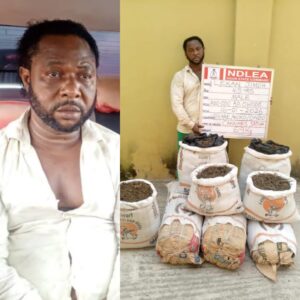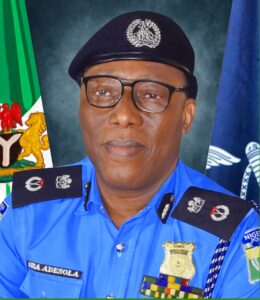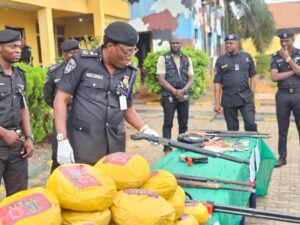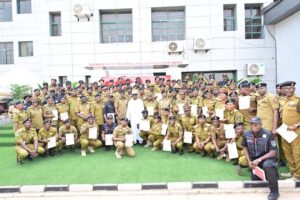Nigeria Commemorates the 6th African Union Day of Anti-Corruption
3 min read
Nigeria Commemorates the 6th African Union Day of Anti-Corruption.
Abuja, 14 July 2022
By Naomisophyblog
On July 11, 2003, the African Union (AU) adopted the African Union Convention on Preventing and Combatting Corruption (AUCPCC). Subsequently, the AU designated July 11 as African Anti-Corruption Day, an opportunity to pause and reflect on the role of corruption in the lives of ordinary Africans, and to share good lessons and practices in the fight against corruption. Today, Nigeria marked the 6th African Union Day of Anti-Corruption by organizing a national dialogue on this year’s theme: “Strategies and Mechanisms for the Transparent Management of Covid-19 funds”.
Under the auspices of the Presidential Advisory Committee Against Corruption (PACAC) and members of the Inter-Agency Task Team (IATT), the dialogue focused on transparency and accountability in the management of funds earmarked for recovery from Covid-19, as well as critical issues regarding the transparent and accountable management of recovered proceeds of crime and enhancing the use of Beneficial Ownership Information to facilitate the identification, recovery and return of proceeds of crime.
Read Also:Biden defends visit to Saudi Arabia inspite of Khashoggi killing
Following opening remarks by members of the IATT, including the Nigerian Financial Intelligence Unit (NFIU), the Economic and Financial Crimes Commission (EFCC), the Independent Corrupt and other Related Offences Commission (ICPC) and the Code of Conduct Bureau (CCB), as well as goodwill messages by UNODC, amongst others, participants heard a keynote speech by the Secretary to the Government of the Federation, Mr. Boss Mustapha. Mr. Mustapha remarked on the government’s efforts, through the Presidential Task Force on Covid-19, to provide policy direction and guidance to control the crisis at federal and state levels, including the mobilization, deployment and monitoring of monetary and technical support from national and international sources.
A highlight of the event was an address by the Special Guest of Honour, the President of the Federal Republic of Nigeria, President Muhammadu Buhari, GCFR. In his speech, the President spoke of the vigorous fight that Nigeria has fought against corruption since 2015 and praised the country’s anti-corruption laws and agencies. He emphasized the need to imbibe the young with ethics and a respect for the Rule of Law, curtail illicit financial flows and work collectively to recover stolen assets if the African continent is to get rid of corruption and achieve its full potential.
UNODC led a panel discussion on “Strategies and Mechanisms for the Transparent, Accountable Management of Recovered Proceeds of Crime”. Speaking on best practices in this area, the UNODC Country Representative, Dr. Oliver Stolpe, proposed some specific measures to facilitate the effective implementation of the Proceeds of Crime (Recovery and Management) Act (POCA), including the promulgation of unified Standard Operating Procedures for the management of seized and confiscated assets by the various law enforcement agencies, creation of a shared registry and certification process for court appointed asset managers, establishment of a jointly managed storage facility and broadening the interpretation of sections of POCA to allow relevant CSOs to receive allocations from the Confiscated and Forfeited Properties Account.
The day’s events focused a spotlight on ongoing efforts to combat corruption in Nigeria, efforts that UNODC has long supported. As a State Party to the United Nations Convention Against Corruption (UNCAC), Nigeria has benefited from UNODC support to the Government, civil society and the private sector to prevent corruption, strengthen integrity, accountability and transparency, enhance the legal framework against corruption, improve the capacity of and coordination amongst various anti-corruption bodies, enhance the recovery and return of the proceeds of corruption, as well as international cooperation.








